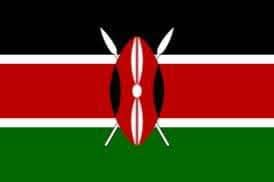Madaxweyne Donald Trump ayaa amray in ciidamada Mareykan ah loo diro magaalada Portland ee gobolka…

How Congo’s Presidential Election Will Be Decided
By Moses Muli/ Couretsy Reuters
Published:Dec.21,2023 10:32 AM(EAT)
Democratic Republic of Congo’s election commission has stated for months that it can deliver a free and fair vote on Wednesday, even as opposition candidates and independent observers flagged irregularities they said would jeopardise the legitimacy of the results.
Africa’s second-largest country modified its electoral law in June last year to improve the traceability of votes and curb irregularities in the compilation of results observed in a disputed 2018 poll, among other reforms that critics said fell short.
The presidential election will be decided in a single round, requiring a simple majority of the vote to win. Voters were also casting ballots on Wednesday for national and provincial lawmakers, as well as local councillors.
Here is what is expected to happen when polls close.
HOW WILL VOTES BE TALLIED?
Vote-counting starts at polling stations immediately after polls close.
The count is supposed to take place in the presence of witnesses, observers, journalists and five voters designated by the head of the polling station, and will continue without interruption until it is complete, the law says.
The commission president or a substitute is expected to announce the full provisional results by Dec. 31.
WHY CRITICS ARE WORRIED
Despite the passing of the revised electoral code, doubts have persisted over the independence of the electoral commission and the appointment of Denis Kadima at its helm. Kadima is an election expert who hails from the same province as President Felix Tshisekedi. His appointment was challenged by opposition parties.
The election commission has also struggled to get enough financial and logistics support from the government to organise the vote.
A key concern for the opposition and independent observers has been an alleged lack of transparency with voter registration and the publishing of voter lists, which they say could enable electoral fraud.
Opposition leaders Martin Fayulu and Moise Katumbi, have warned that they’ll only accept results that are published from polling stations and nothing else, raising the prospect of a protracted dispute after the vote.
HOW WILL DISPUTES BE RESOLVED?
Political parties, candidates or those mandated by them have two days after the provisional results are announced to challenge the outcome of the presidential election at the Constitutional Court. The court then has seven days to rule on the case and proclaim the final result.
The next president is due to be sworn in on Jan. 20.



This Post Has 0 Comments